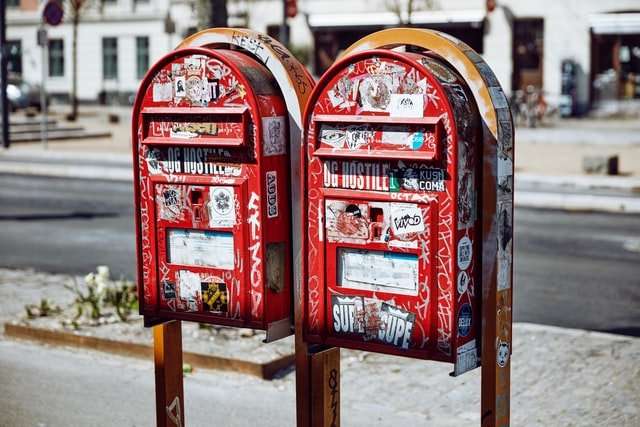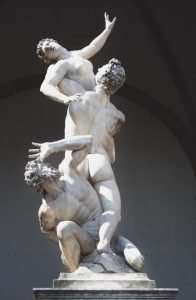I have been making art for a long time and I’ve noticed that a lot of artists struggle with being creative. Part of the problem is that they overthink the creative process. To make art you don’t need to know everything about art. You just need to know enough to get started.
When you begin you will feel like a beginner and that’s OK, because everyone has to start somewhere. All you need is curiosity and a sense of adventure. You don’t need an advanced degree in art or an MFA or even any experience. All you need is willingness to experiment and the ability to be honest with yourself about what works and what doesn’t work. If you can do those two things, you will be able to create work that expresses who you are.
%%%%%%%%%%%%%%%%%%%%%%%%%%%%%%%%%%%%%%%%%%%%%%%
Name:What is Creativity?
Art and design are in an exciting time right now. If you look at the pages of the magazines, or listen to the chatter of your peers, or even just browse your favorite art sites, you will notice a common theme: the creative process. The creative process is getting a lot of attention from both professionals and amateurs alike. There is no question that it is important to understand and work with our creative process, but I think there is a lot of unnecessary anxiety about how our process works. We do not need more advice on how to be creative; we need less.
We are all creative beings. We hold within us the power of imagination and creation. We are not just artists and designers, we are artists in our everyday lives. The magic and artistry in us comes out in many ways: in solving problems, creating relationships and conversations, imagining what could be, seeing potential before it is here, coming up with solutions that others have not thought of yet, or simply by having dreams come true.
The conversation around creativity needs to shift from one that creates anxiety to one that encourages success by being open-minded, kind and respectful to each individual artist’s process. It is time we let go of the overthinking that has been holding so many
Many artists are frustrated by a persistent feeling that they should be creating more, and that they’re not fulfilling their potential. This sense of urgency and self-criticism can be debilitating. The irony is that it’s often the artist’s own resistance to the creative process that is getting in the way. The key to unlocking your creativity is gaining confidence in your ability to create.
Trying to force yourself to be “more creative” rarely works.
It’s important to recognize that being creative is not about having ideas. Ideas are easy. Anyone can have ideas—everyone has ideas all the time—but not everyone does anything with them. People who tell you that you should “just get out there and do something” are missing the point entirely.
One thing I find helpful when people ask me for advice on how to be creative is telling them about my own experience. I’ve learned that talking about my own experiences helps me understand my own process, and maybe it will be helpful for some of you as well.
I’m going to tell you a story about one of the most difficult moments of my life, and how learning to accept my anxiety helped me overcome it.
I was in college at the time, taking classes like Introduction to Computer Science,
“I notice that I am not writing. I am not drawing. What I do feel is anxiety about my creative process: it is too fluid, too ambiguous, too messy–I can’t pin it down long enough to give myself permission to move forward.”
When I work with artists and writers who are blocked, this is the refrain I hear again and again. This anxiety about the creative process is common among creative people–and for good reason: we don’t want to waste our time on a bad idea, or lose the chance at a good one by prematurely committing to something we’ll later wish we’d left behind.
Thing is, though, when we try to control our creative process it becomes less fluid, less ambiguous and more complicated than it needs to be. And when we let go of trying to control our creative process, it becomes more fluid and clear than we could ever imagine.
What if you could spend less time worrying about your creative process and more time creating?
Here’s how…
A lot of people think being an artist is easy. The truth is, though, that if you’re creating art, you’re probably also thinking about creating art. And if you are thinking about creating art, then you are analyzing it. And analyzing something takes time.
Telling a story about an idea or a painting before it exists can be a creative act in itself, but it can also be dangerous: it might not work out, and this might make you feel bad about yourself. So at times like that it’s important to remember that things worth doing are worth taking risks on…
Vincent van Gogh is said to have claimed that others needed only “faith” while he had to have “conviction.” He believed his own artistic sensitivity was so great he could not afford to take chances on whether his creations would succeed. Instead, he felt compelled to prepare rigorously beforehand: to work and rework his compositions until they were totally right before ever putting paint on canvas…
But what if the problem wasn’t the preparation? What if the problem was how much time it took for him to get started?
Artists tend to be very self-critical, so at times they can be paralyzed by anxiety. They start to believe that they need to have the perfect idea before they can start working on a project. They can’t allow themselves to make any mistakes or their work won’t turn out right.
This way of thinking is unproductive and it can lead to procrastination and inaction. If you fall into this trap, the key is to remember that creativity is not a linear process, it’s a fluid one. You don’t have to have it all figured out before you start working on your project. Sometimes you’ll be able to solve problems as you go along and other times you’ll need to step back and reflect on what you’ve done in order to move forward.*
I was fortunate enough to discuss this topic with my friend, the brilliant and talented artist, Ben Towns. He is a highly sought after portrait artist, but also works in fine art, illustration and murals.
More recently he has been painting full time while also teaching at the prestigious Maryland Institute College of Art (MICA). He is the director of their Painting department and has a studio in their contemporary art building.
He is also a very nice guy who loves what he does. I hope you enjoy our conversation about painting and creativity.
What do you want people to think and feel when they see your work?
I want them to see my work as an extension of myself. I want it to feel personal to the viewer even though it might be a portrait or landscape that they are not familiar with or even like. I want them to be able to “relate” to the painting and understand it at some level. In terms of color, composition, subject matter and just general mood/vibe I want people to look at my paintings and say, “I like this.”
What is your creative process? How do you go from thinking of something to creating a finished piece? Where are you in your life right now? Are you married? Do you



